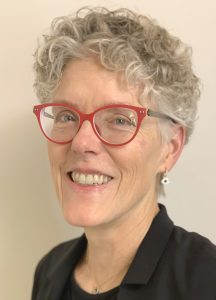A highly accomplished vision scientist and expert in colorblindness has been announced as the keynote speaker for the 2022 George Kambara, MD Vision Science Symposium.
Maureen Neitz, PhD is the Ray H. Hill Endowed Chair in Ophthalmology at the University of Washington. Along with husband Jay Neitz, PhD, she runs the Neitz Lab, which seeks to better understand the causes of colorblindness and develop an effective therapeutic solution. Perhaps most notably, the Neitz Lab has been able to successfully use gene therapy to cure color blindness in adult monkeys.
 “We are thrilled to have Dr. Neitz as our keynote speaker this year,” said Mrinalini Hoon, PhD, an assistant professor of ophthalmology at the University of Wisconsin who serves on the Kambara Symposium planning committee. “Dr. Neitz has been at the forefront of research uncovering the molecular and genetic mechanisms that mediate color vision and we are excited to hear about her latest findings.”
“We are thrilled to have Dr. Neitz as our keynote speaker this year,” said Mrinalini Hoon, PhD, an assistant professor of ophthalmology at the University of Wisconsin who serves on the Kambara Symposium planning committee. “Dr. Neitz has been at the forefront of research uncovering the molecular and genetic mechanisms that mediate color vision and we are excited to hear about her latest findings.”
Neitz’s talk is titled, “A Solution to the World-Wide Myopia Epidemic: A Tale of Translation from Bench to Clinic.” She says she’s particularly excited to give this talk to a Wisconsin audience, as the work was partially inspired by the research of DOVS chair Terri Young, MD, MBA.
“In 2004, Dr. Young published a paper reporting linkage of the MYP1 myopia locus to Xq28,” Neitz said. “Xq28 is the chromosomal location of the red and green cone photopigment genes, which I have been studying for more than 30 years. Dr. Young’s paper stimulated my interest in myopia and in the potential role of cone opsin genes in myopia.”
This year’s Kambara Symposium takes place virtually on Friday, April 8. In addition to Neitz’s keynote address, the event will feature presentations from local and regional speakers, including:
- Maureen McCall, PhD from the University of Louisville.
- C. Ross Ethier, PhD from the Georgia Institute of Technology.
- James Chodosh, MD, MPH from Harvard University.
Registration for the event is now open. Please click here to register.
The annual George Kambara, MD Vision Sciences Symposium is supported by the Department of Ophthalmology and Visual Sciences George Kambara Education Fund and McPherson Eye Research Institute.